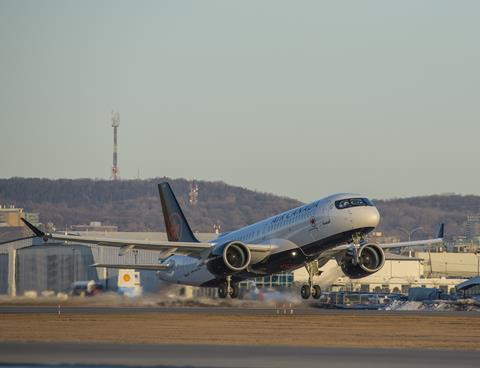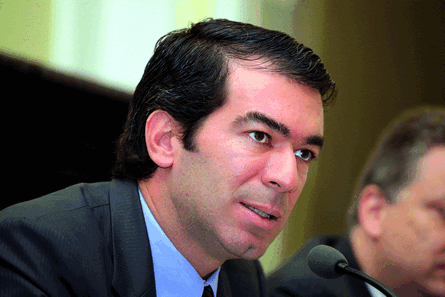Just days before a potential pilot strike that could have disrupted air travel across North America, Air Canada and its pilots, represented by union Air Line Pilots Association, International (ALPA), have tentatively agreed to new contract terms.
ALPA said early on 15 September that the four-year deal will generate “an approximate additional” C$1.9 billion ($1.4 billion) of value for Air Canada pilots over the life of the contract.
“While it has been an exceptionally long road to this agreement, the consistent engagement and unified determination of our pilots have been the catalyst for achieving this contract,” Air Canada’s ALPA master executive council chair Charlene Hudy, says.
“After several consecutive weeks of intense round-the-clock negotiations, progress was made on several key issues including compensation, retirement, and work rules.”

Air Canada adds that the contract “recognises the contributions and professionalism of Air Canada’s pilot group, while providing a framework for the future growth of the airline”.
The contract must now be approved by the 5,400-strong pilot group and Air Canada’s board of directors.
“This agreement, if ratified by the pilot group, would officially put an end to our outdated and stale decade-old, ten-year framework,” Hudy adds.
Negotiations on a new collective agreement began in June 2023 and entered private mediation in January 2024. In June, as talks dragged on, the union decided to file a notice of dispute and enter conciliation because the two sides were unable to reach a new collective agreement.
Last week, Canada’s largest carrier said it was preparing to suspend “most of its operations” as the negotiations stalled and a pilot strike loomed. Air Canada had said it and ALPA remained “far apart” on an agreement, adding that ALPA, citing wages paid by US carriers, has been seeking gains that “far exceed average Canadian wage increases”.
If the talks had remained at an impasse, beginning on 15 September either party had the right to issue a 72-hour strike or lock-out notice, which would have triggered the carrier’s three-day wind-down plan.
On 12 September, Air Canada called on the country’s minister of labour to prohibit the airline’s pilots from walking off the job, though the minister insisted the parties should reach an agreement without government interference. That proposition also drew stern criticism from competitor Air Transat.
“The extension of such an extraordinary intervention would be an undeniable advantage to the detriment of other airlines in Canada,” Air Transat’s chief executive Annick Guerard said.


























